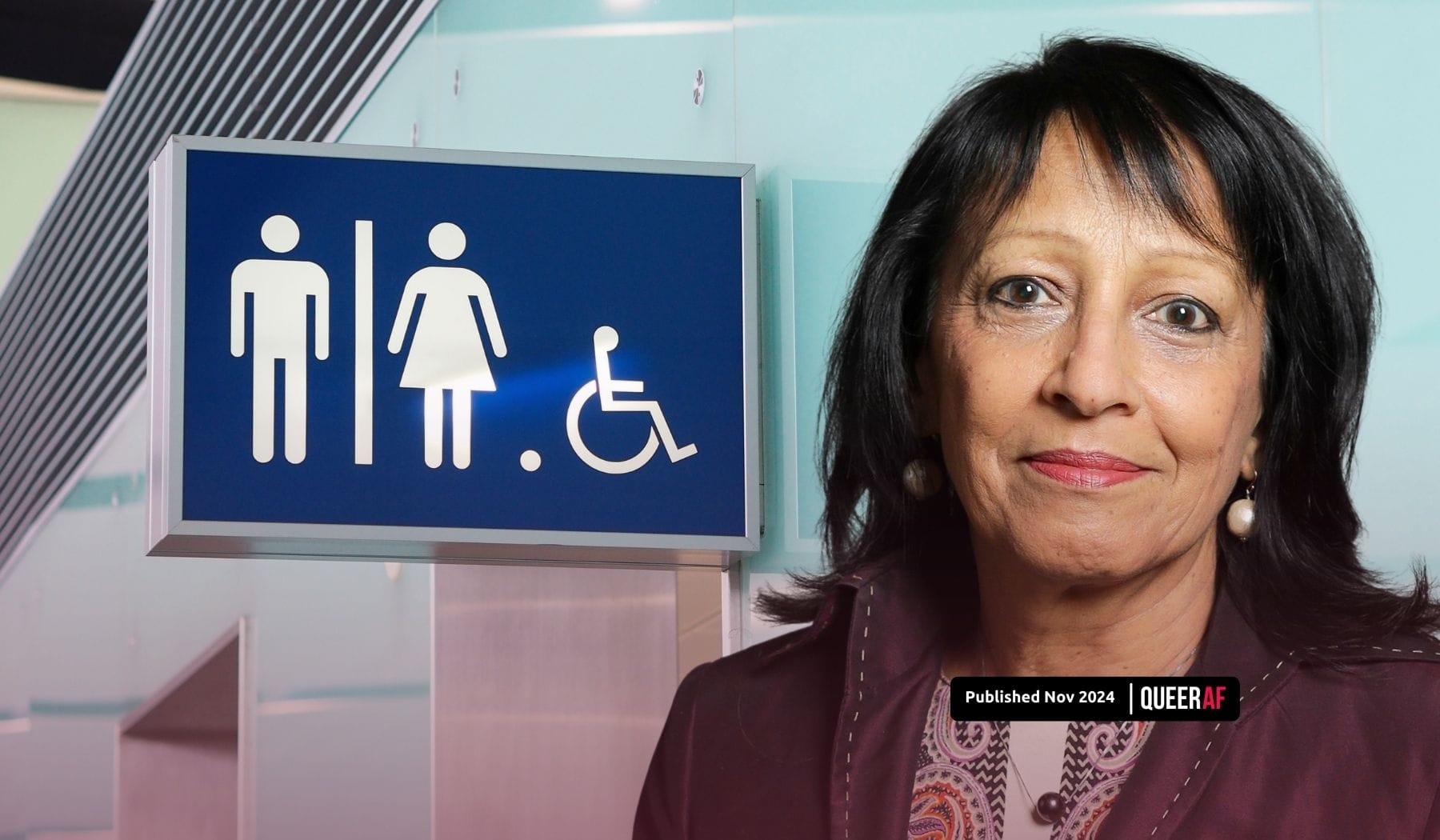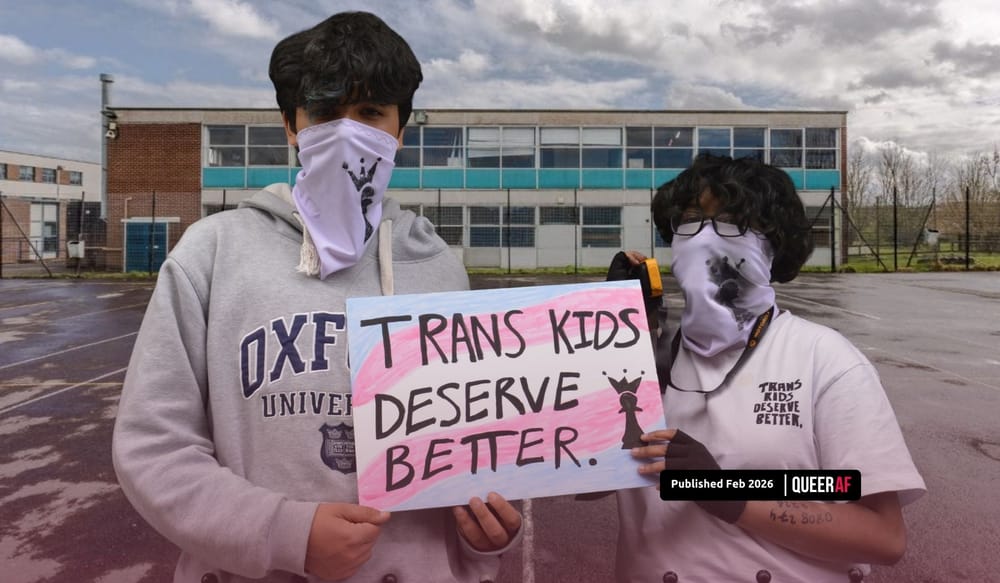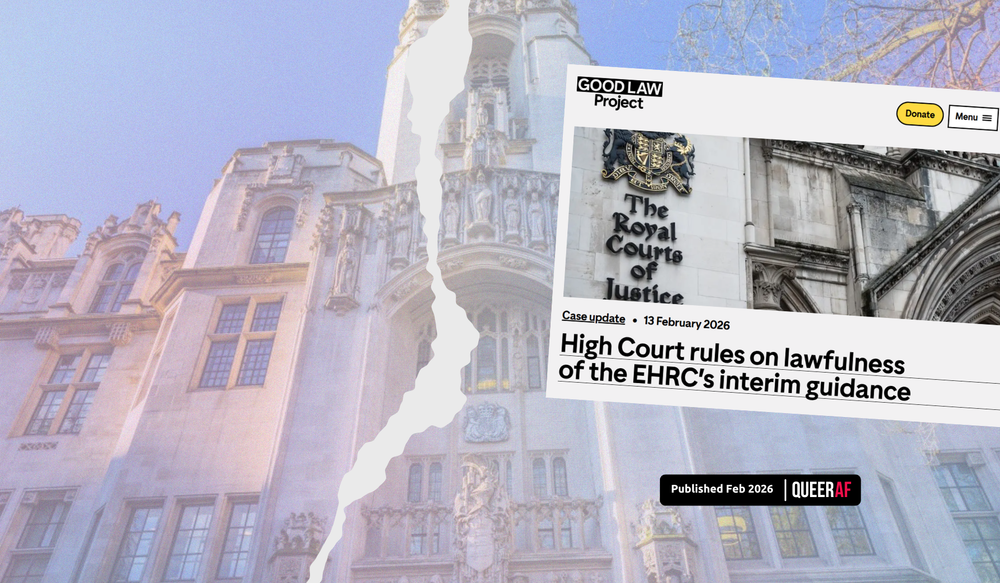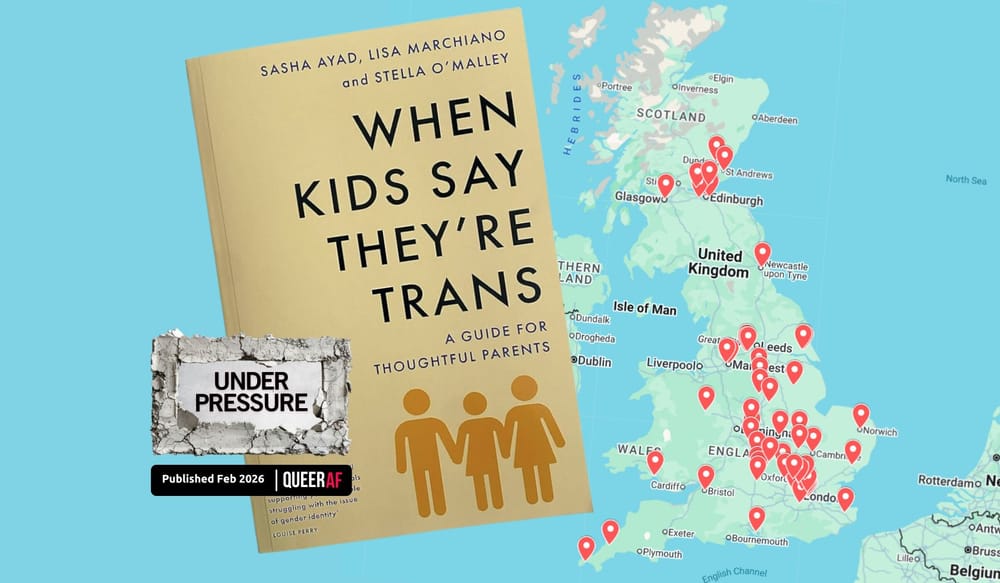TL;DR: Leaked copies of a yet to be approved code of practice by the Equalities Watchdog the EHRC have been decried a "misogynist’s charter" as they call on business and service providers to judge people based on their appearance and behaviour to restrict use to single-sex services.
The Equality Watchdog's draft code of practice, seen by multiple media titles, says businesses and services should judge people based on whether they can access services based on appearance, behaviour or concerns raised by other users.
It has been decried as a "misogynist’s charter" by the Trans+ Solidarity Alliance, and received wide condemnation about how it will ultimately police people's use of toilets, changing rooms and services based on ever-narrowing gendered stereotypes.
A spokesperson for TransActual called it "a license to discriminate based on looks, plain and simple."
The guidance, leaked to the BBC and The Times also seeks to undermine gender recognition certificates by saying "no type of official record or document in the UK which provides reliable evidence of sex". It sets out, therefore, how services may have to ask people to provide confirmation they are of the eligible sex "by proportionate means", though details are not reported on what this would look like.
It suggests services should make decisions on access, and says "evidence of concern" can be based on the "individual's physique or physical appearance, behaviour or concerns raised by other service users."
However, it sets out that it is "unlikely to be legitimate for such concern to be based on whether someone adopts the clothes or other forms of presentation conventionally associated with one or other sex."
It further warns that, despite suggesting this should take place, Trans+ people should be treated with dignity and that "discrimination or harassment could occur" if a person is questioned about their sex publicly, and that this should be handled "discreetly".
The minister of Equalities, Bridget Phillipson, who has repeatedly said she would take her time to consider the guidance, is with her office to publish, or send back for revisions. She has already rebuked the EHRC and warned it to stay in its lane amid its unprecedented public policy interventions and lobbying-esque moves that are creating pressure on the minister.
In court last week, Phillipsion "seemed to agree" with the Good Law Project's case against an 'interim update' from the watchdog, which, before being withdrawn, recommended segregation for Trans+ people.
In her submission to the court, the Equalities Minister Bridget Phillipson questioned the logic of the EHRC's arguments and said that much of it relied on a 'service test' that is not included in the Equality Act.
Trans+ Solidarity Alliance's Jude Guaitamacchi called the leaks this week a misogynist’s charter, adding, they "reveal that not only does the EHRC’s proposed code of practice seek to require trans exclusion, it instructs service providers to police this based on appearance and gender stereotypes."
Analysis: Under the guise of a moral panic about Trans+ people, this code will police everyone by Victorian standards
“Bathroom bills reduce people to their appearance – when it's people’s behaviour that deserves the attention,” Trans Media Watch's Helen Belcher told QueerAF when planned UK single-sex laws were shelved under Liz Truss's time as Equalities Minister.
"Women start to get singled out because of their appearance. [Bathroom bills are] ultimately a law enforcing gender stereotypes.”
Though this code of practice has been drafted in response to a Supreme Court ruling that was about Trans+ access to single-sex spaces, if approved, this is a code that will affect everyone, no matter what gender you are.
It will permit people to enforce sexist, patriarchal, misogynistic norms on what men and women should look like, how they should behave, and who should access any public space.
Where other bathroom bills have been enacted, they have been found to increase violence, especially for women. Most prominently in North Carolina in 2016, it was repealed after it was found that the law was making women more likely to be the victim of harassment.
It is also striking that this leak comes after Phillipson's comments in court last week, suggesting she is distancing herself from the EHRC's stance. Notably, this leaked document has received widespread coverage, but Phillipson's comments in court were barely covered. It was also released on Transgender Day of Remembrance, a day that is supposed to be dedicated to remembering the Trans+ people lost in the last year. Neither of these elements featured in the mainstream news coverage we saw.
It reeks of institutional bias across a wide range of media titles, failing to cover all the developments that could define what we all should 'look like' to have a role in public life. A move that will lead to violence, attacks and increased persecution of women, Trans+ people, and even gender-nonconfirming cisgender people.

Thousands of you have read our journalism from court last week.
But why were these critical court precedings barely covered by the rest of the press, including the gay press?
It was vastly significant that the Equalities Minister, who up until now had largely been vocal in support of the Supreme Court ruling, questioned whether reducing the rights of Trans+ people was the outcome it intended. Something the court quite explicitly said at the time, should not be a consequence of it's ruling.
And yet, when more leaks about a code of practice, which has already been branded as "cruel" based on what little we do know about it, happens, it's all over the headlines.
Transphobia has become institutionally ingrained in so much of the mainstream media, and is going unchallenged with a lack of representation in the newsroom.
Meanwhile, most of the gay press's click-based models don't afford them the resources to dive in-depth into complex stories and turn around nuanced, considered explainers that help you understand the news.
That's why our model ensures our biggest source of revenue, is from people like you. It enables our journalism to be grounded in the needs of the community, not advertisers.
We truly believe LGBTQIA+ information shouldn't be a luxury, but if you can for just a few quid a month - we need you to upgrade today.
QueerAF is providing news, investigations and coverage no-one else is prepared to, or even set up to deliver.
Please, upgrade today and help keep this newsletter free, and fund our work lobbying the media, and mentoring Trans+ creatives to get into the newsroom - to change the media.











